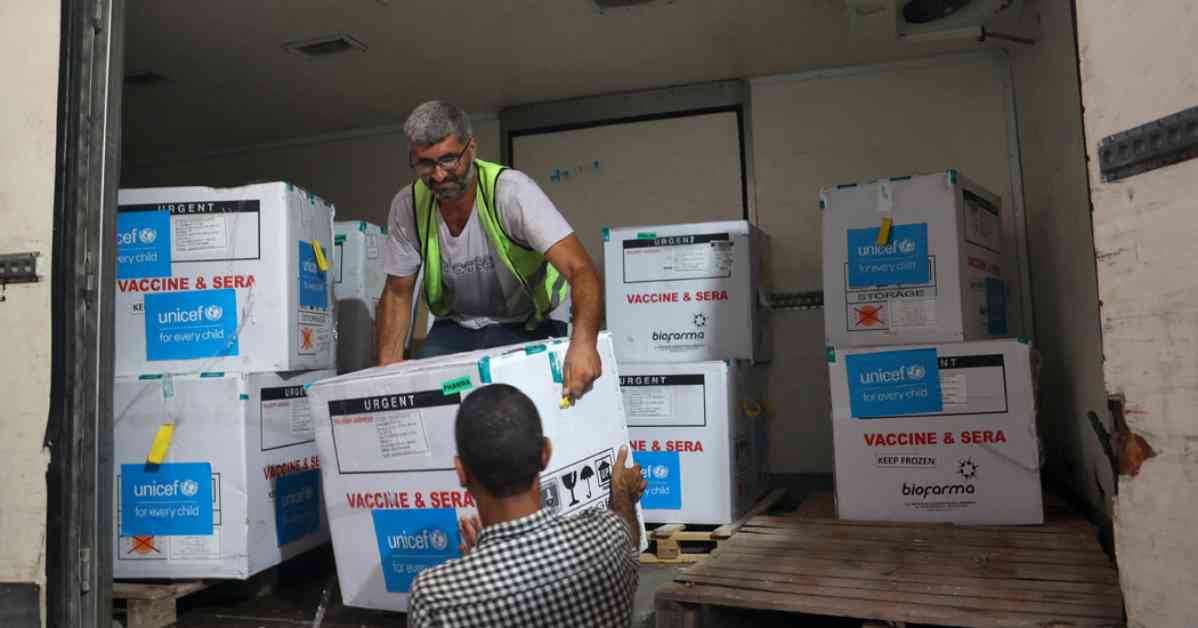UNICEF, along with other humanitarian organizations, is facing challenges in distributing polio vaccines in Gaza following the confirmation of the first case of the disease in the territory in 25 years. The arrival of more than 1.2 million doses of the vaccine is a critical step in the effort to inoculate over 640,000 Palestinian children and prevent a potential outbreak.
The Arrival of Polio Vaccines in Gaza
The vaccines, which arrived on Monday, are part of a coordinated effort between UNICEF, the World Health Organization, UNRWA, and other groups to ensure that every child in Gaza receives the necessary two doses of the polio vaccine. This initiative comes in response to the urgent need to contain the spread of the disease and protect the vulnerable population in Gaza.
The delivery of the vaccines marks a significant milestone in the fight against polio in Gaza, but the success of the vaccination campaign hinges on the ability of health workers to navigate the complex and challenging conditions on the ground. Sam Rose, a senior official from UNRWA, emphasized the difficulty of the operation and stressed the importance of cooperation and support from all parties involved.
Challenges in Vaccine Distribution
Despite the arrival of the vaccines in Gaza, the distribution process faces several obstacles, including logistical challenges and the impact of ongoing conflict in the region. The ability to reach every child in need of vaccination is crucial to preventing the spread of polio and ensuring the health and well-being of the population.
The Gaza Health Ministry is working to prepare for the vaccination campaign, but the timeline for distributing the vaccines to medical centers remains uncertain. The temporary halt in humanitarian operations due to the evacuation of Deir al-Balah by the Israeli military has further complicated the situation, raising concerns about the timely delivery of vaccines to those in need.
Continued Commitment to Vaccination Efforts
Despite the challenges and disruptions caused by the conflict, UNICEF and its partners remain committed to carrying out the vaccination campaign in Gaza. A senior U.N. official affirmed that plans to begin polio vaccinations are still on track, underscoring the importance of ensuring that every child has access to life-saving vaccines.
The success of the vaccination campaign will depend on the ability of health workers to overcome obstacles and reach every child in Gaza. The cooperation and support of all stakeholders, including governments, organizations, and communities, are essential to ensuring the success of the vaccination effort and protecting the health of Palestinian children.
In conclusion, the distribution of polio vaccines in Gaza is a critical mission that requires careful planning, coordination, and collaboration among all parties involved. Despite the challenges and uncertainties, the commitment to vaccinate every child in Gaza remains unwavering. The successful containment of polio in the region depends on the collective efforts of health workers, humanitarian organizations, and the international community to ensure that no child is left unprotected against this preventable disease.


















